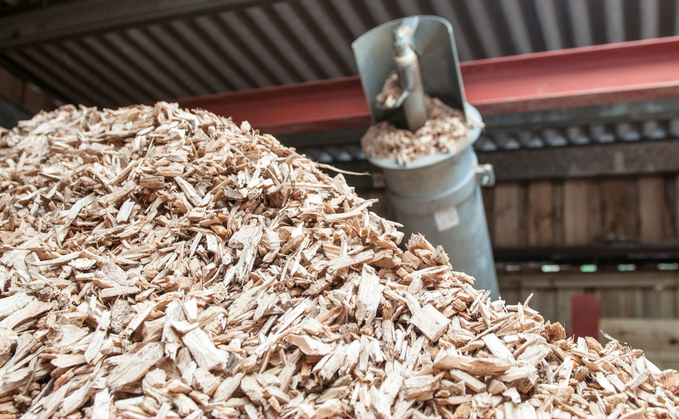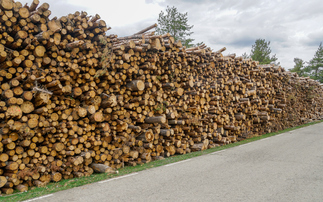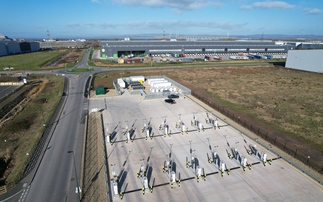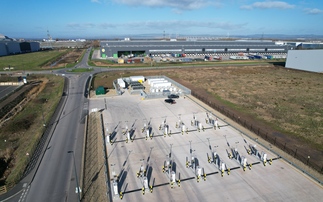
Woody biomass is a feedstock for biofuels | Credit: iStock
Can next generation biofuels win over their detractors and confirm their position as a critical commodity in the net zero transition? Wood Mackenzie's top biofuels experts offer their take
Biofuels are inherently controversial. In recent years, leading green groups have branded the 21st century drive to ramp up the use of biofuels in transport - set in motion by late 2000s-era EU and US renewable fuels targets - as a "fiasco", a "scandal" and "Europe's dumbest climate policy". Demand for biofuels has seen significant tracts of land, much of it the Global South, repurposed for energy crop production, a trend that campaigners have blamed for driving deforestation and biodiversity destruction while exacerbating food insecurity.
Meanwhile, academic studies have detailed how the emissions produced by clearing land and fertilising, farming, and shipping many 'energy crops' can be almost as large, and in some cases larger, than the emissions resulting from the fossil fuels they are designed to replace.
But despite these well-documented issues, many energy industry experts insist biofuels have a major role to play in the transition to a net zero emission economy, in particular for decarbonising heavy-duty transport sectors that are resistant to electrification, such as shipping, aviation, and potentially trucking.
The argument goes that biofuels produced using sustainable feedstocks and low carbon processes can enable rapid emissions reductions in the short to medium-term, because they seamlessly integrate with existing fossil fuel infrastructure and can be mixed with existing gasoline, diesel, or kerosene.
These emissions reductions create more space and time for nascent zero emission technologies, such as hydrogen fuelled jets or electric trucks, to be developed and deployed.
As such, despite their detractors biofuels continue to play a prominent role in many decarbonisation scenarios. The International Energy Agency (IEA), for example, has calculated that global biofuel output needs to triple by 2030, as demand for liquid fossil fuels plummets, if the world is to stave off the worst impacts of climate change.
Regulators and investors have taken note. Oil and gas majors have unveiled major biofuel investment drives so they are positioned to supply the fuel required to meet existing or upcoming clean fuel regulations in India, the EU, US, and Canada.
Sustainable aviation fuel, or SAF for short, is the latest big thing to sweep the aviation sector, with major airline operators making fuel blending a critical plank of their net zero strategies.
Policymakers are also backing the fledgling sector, with numerous SAF mandates in the pipeline that would require airlines to ensure a proportion of their fuel to come from sustainable sources in the coming years.
This growing interest in biofuels - coupled with the continuation of many of the original biofuel policies that were blamed for so many negative land use impacts - has inevitably caused serious consternation among environmental groups. Campaigners fear there are insufficient safeguards to allow companies to distinguish between different types of biofuel commodities: those that are produced using sustainable feedstocks and deliver genuine emissions savings; and those that are reliant on traditional energy crops and may have negative land use impacts. As such, governments and transport firms are continuing to face calls for them to do more to ensure that liquid renewable fuels are produced in a 'sustainable' way, using non-food-crop feedstocks that result in minimal emissions, land use, and food security implications. The chronic food price inflation seen since Russia's invasion of Ukraine - two critical producers of basic food staples - has further intensified calls for a moratorium on the use of food crops such as rapeseed, palm oil, corn, and sugarcane to produce fuels.
These arguments are cutting through. The IEA has argued the next chapter for biofuels must be predicated on a reduced role for the crop-based fuels which currently make up the overwhelming majority of the market. Its net zero pathway demands that nearly half of biofuels consumed in 2030 - 45 per cent - must be produced with wastes, residues, and dedicated crops that do not compete with food stocks, up from just seven per cent today.
There have been growing calls for the transport industry and regulators to move away from biofuels altogether, and instead focus clean fuel investment programmes on scaling hydrogen-based e-fuels that can be produced with limited emissions using carbon capture and hydrogen technologies.
Regulatory and industry momentum
But Gordon McManus, research director for refining and oil products team for the Europe, Middle East, Africa region at leading research and consulting business Wood Mackenzie, said the biofuels industry might be poised to "come of age" in the 2020s, after a somewhat bumpy ride in recent years. "There's a lot of regulatory and industry momentum behind the biofuels sector at the moment," he told BusinessGreen. "Most of the oil majors have talked about making investments in biofuels, and want biofuels as part of their fuel mix going forward. If I rewind 12 years that wasn't the case."
Indeed, the enthusiasm for biofuels that emerged in the late 2000s was not always matched by the action in the years that followed, as the food-versus-fuel debate grew louder, concern about fuels' environmental impacts intensified, and the blending and production limitations for so-called 'first generation' biofuel technologies become apparent.
The US missed its noughties-era target to consume 36 billion gallons of biofuel by 2022, of which more than a third had to be non-food-crop derived. The EU, on the other hand, announced earlier this year it had met its decades-old target to have a 10 per cent renewable fuel mix target for the transportation sector by 2020. But this achievement was driven by a small number of member states going over and above expectations, with 15 countries - including energy heavyweights France, Germany, and Spain - failing to meet the goal.
McManus said the growth of the biofuels sector throughout the 2020s would depend on how quickly industry and government managed to scale industrial-scale production of biofuels produced from non-food crops. Potential feedstocks could range from agricultural byproducts that sit outside the food system, such as wood waste or corn stover, and municipal waste and recycled plastic waste, he said. "Some studies suggest that if we use non-food feedstocks, such as municipal solid waste, recycled plastic waste, or agricultural and forestry residues, biofuels' potential could be up to 20 million barrels a day [up from three million today]," McManus noted. "But it is going to require investment, government support, and development of technologies that are only just becoming commercial or slightly pre-commercial."
New technologies
A failure to expand the industry's current focus from food-based crops and waste oils and fats would limit the growth of the sector, given the regulatory restrictions on using food-based energy crops and the capacity limitations of sourcing waste oils and fats, he explained. "We get better at capturing certain waste feedstocks, such as used cooking oil, but ultimately, there will be a limit on those," McManus said. "If that's where the industry stays, then ultimately the growth will be modest."
The vast majority of biofuel production today is from food crops, with 1.8 million barrels a day of ethanol produced from corn in the US, sugarcane in Brazil and, to a lesser extent, wheat in Europe. The remaining 1.2 million barrels a day comes from biodiesels, produced largely using soybean oil, palm oil, and rapeseed oil, with a smaller volume produced from used cooking oil, McManus explained.
Today, these fuels are largely used as blending agents with conventional petrol or diesel fuel, reducing the carbon intensity of the fuel and helping to reduce emissions from vehicle tailpipes. Standard E10 petrol in the UK, for instance, has a 10 per cent ethanol blend. Brazil, a major biofuels producer and consumer, has been blending higher levels of ethanol produced from sugarcane into its cars for more than 40 years.
But McManus said research was underway into exploiting alternative feedstocks, as well as advanced gasification technology, which would enable operators to sidestep combustion when converting waste into energy. Meanwhile, the cellulosic ethanol market, which relies on corn stover, wood waste, straw or plant material not used in food production, such as switchgrass or miscanthus, to produce biofuel is growing rapidly, he said.
"There is a lot of government and industry interest in making this work and increasing the volume of biofuels," he said, pointing to a host of new technologies being piloted and commercialised around the world, from alcohol-to-jet technologies which aim to convert ethanol into jet fuel to a number of cellulosic ethanol plants that have come online in recent years. "With the [oil] majors setting [biofuels] targets, it feels like there's a momentum that will carry it forward this time around, unlike the late 2010s when it slowed down and went out of the headlines."
Targets to produce 100,000 to 200,000 barrels a day of biofuel are now standard issue for oil and gas majors, whilst the aviation sector is now being forced to take renewable fuel seriously by the ratcheting SAF mandates that are set to come into force over the coming decade, he argued. "A decade ago, I went to conferences where there would be whole side streams where every major airline would say they were doing little small-scale trials on biofuels," he recalled. "But ultimately, at that time, the message came back that it's not biofuels at any cost, and they were not going to pay more for these. Now it's different."
SAF fever
Indeed, the aviation sector has become a major cheerleader for renewable fuels over the last two years, with so-called sustainable aviation fuels featuring as the cornerstone of most major airlines near-term decarbonisation plans.
The International Air Transport Association (IATA's) estimates that low carbon fuels are set to contribute around 65 per cent of the reduction in emissions required across the industry to achieve net zero by 2050, and the EU Commission has set a long-term target for 63 per cent of jet fuel use for all flights departing EU airports to be 'sustainable'.
The move has prompted significant criticism from campaigners who have warned the industry could struggle to secure sufficient sustainable SAF feedstocks to significantly displace fossil fuel based jet fuels, arguing the sector is talking up SAFs to justify inaction on demand reduction policies and distract from the lengthy development timelines for unproven zero emission aviation technologies.
McManus acknowledged that the aviation sector's long-term, 2050 SAF targets are heroically optimistic. "We don't think given current technology that [IATA and the EU's SAF goals] are achievable," he said.
But the lower levels of SAF blending proposed by governments and aviation sector for the second half of the 2020s are credible, he noted. "That looks feasible," he said, of targets to ensure around five per cent of jet fuels come from SAFs by 2030. "It requires continuing to grow these next generation feedstocks - cooking oil, tallows, waste oils from the forestry industry or other industries - and diverting some of that material away from the road transport sector. But the longer-term targets very heavily rely on the development of a fairly large-scale commercial agricultural waste or municipal solid waste to biofuel technology, or the development of hydrogen-based fuels."
The advent of hydrogen-based fuels
Campaigners have argued that if the aviation sector wants to meet its SAF commitments it needs to ramp up investments in e-fuels - otherwise known as electrofuels, synthetic fuels, or power-to-liquid-fuels - which can be produced with zero emissions and without land use implications by combining green hydrogen, captured carbon, and water.
Whilst more expensive to produce than biofuels, campaigners have argued capital investments in the embryonic sector could quickly pay off for the environment and the climate. In the shipping sector, campaigners are similarly calling for companies and regulators to focus on hydrogen-based fuels, such as ammonia or e-kerosene, with are less technologically mature but promise to have fewer environmental impacts than biofuels that are always going to face questions over how to secure sufficient feedstocks.
McManus said there was space for e-fuels and hydrogen-based fuels to grow in tandem. "There's room for them to work together, but also with a little bit of healthy competition, in that you can take the hydrogen fuels even further," he said. "And if you capture carbon, you can produce a synthetic e-fuel."
While the costs of producing biofuels are expected to fall over the coming years - the IEA estimates average production could fall by 27 per cent over the next decade as production methods mature and demand grows - biofuels are not expected follow the trajectory of renewable power and end up undercutting the fossil fuel competition. Renewable diesel is currently "two and a half to three times" more expensive than conventional diesel, despite oil being $100 a barrel, McManus said. "With the caveat that Brazilian ethanol can be competitive at times, broadly speaking the investment case for biofuels is built around your expectations around future environmental regulation and carbon prices," he explained.
But, despite this economic reality and their many detractors, McManus says it is incontestable that biofuels will provide one of the cornerstones of any net zero economy, thanks to their energy density, their ability to piggyback infrastructure designed to transport liquid fossil fuels, and the mounting evidence that next generation fuels can address concerns over their land use footprint and lifecycle emissions.
"Certain sectors of transport are going to need to continue to use liquid fuels, if they're going to operate largely as they do today," " he said. "Wood Mackenzie's 1.5C scenario has global liquids demand falling down to 35 million barrels a day. And so, if biofuels really came of age, and we use all the potential economic feedstock that some studies have laid out, biofuels could meet two thirds of that 2050 demand in a net zero world that keeps global temperatures from rising beyond 1.5C."
This article is part of the Net Zero Commodities Hub, hosted in partnership with Wood Mackenzie.
Want to find out more about the net zero transition and how businesses are seizing the opportunities on offer? Sign up now for the Net Zero Festival, which will take place in London on September 28th and 29th.










